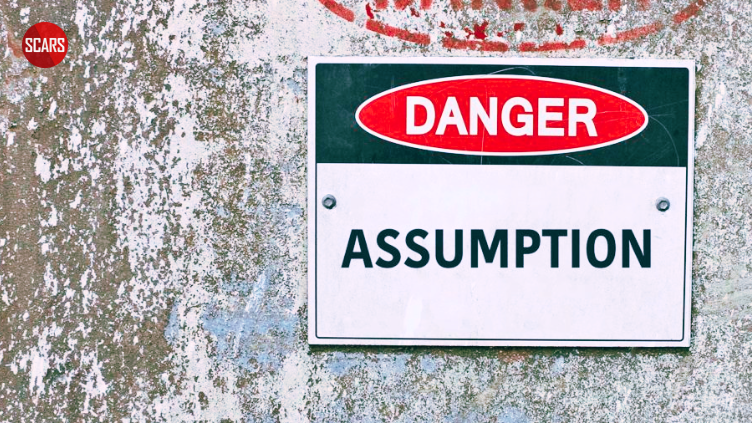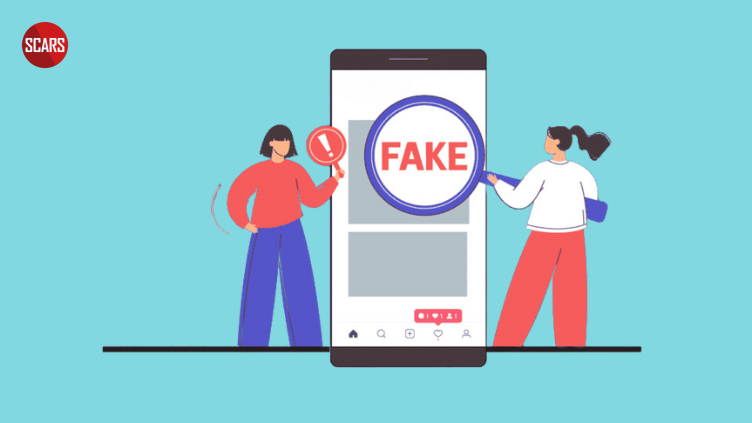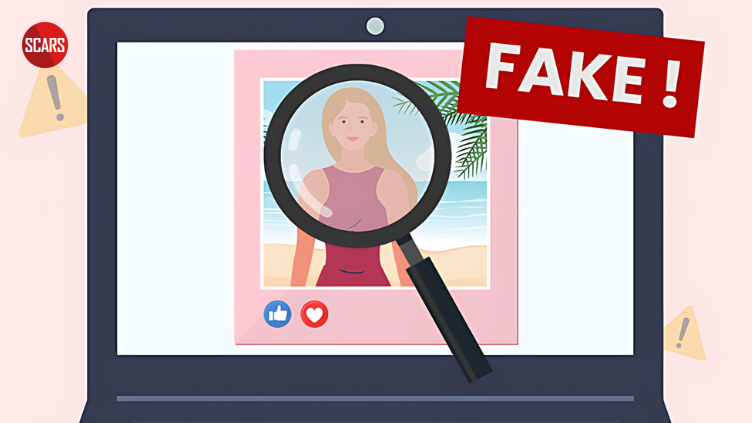Scam Victim Scammer Obsession – Part 3
The Scam Victims’ Need For Control Drives Their Obsession on Exposing Scammers!
Primary Category: Scam Victim Recovery Psychology
Authors:
• Vianey Gonzalez B.Sc(Psych) – Licensed Psychologist, Specialty in Crime Victim Trauma Therapy, Neuropsychologist, Certified Deception Professional, Psychology Advisory Panel & Director of the Society of Citizens Against Relationship Scams Inc.
• Tim McGuinness, Ph.D., DFin, MCPO, MAnth – Anthropologist, Scientist, Polymath, Director of the Society of Citizens Against Relationship Scams Inc.
About This Article
Victims of relationship scams often experience a deep sense of betrayal and helplessness, leading them to obsessively expose scammers in a desperate attempt to regain control over their lives. This behavior is driven by the illusion of control, providing a temporary sense of empowerment and relief.
However, the fixation on exposing scammers can hinder recovery, as it perpetuates feelings of anger and distress, and may interfere with personal and professional life. While seeking justice is natural, victims must prioritize their healing and well-being, balancing their desire for control with constructive actions that promote recovery and personal growth.
Note: This article is intended for informational purposes and does not replace professional medical advice. If you are experiencing distress, please consult a qualified mental health professional.

A Note About Labeling!
We often use the term ‘scam victim’ in our articles, but this is a convenience to help those searching for information in search engines like Google. It is just a convenience and has no deeper meaning. If you have come through such an experience, YOU are a Survivor! It was not your fault. You are not alone! Axios!
The Desperate Need for Control for Scam Victims After the Scam: A Key Driver Behind Scammer Exposing Obsession
Victims of relationship scams experience a profound sense of betrayal and helplessness, leaving them in a vulnerable emotional state. One of the most compelling reasons victims become obsessed with exposing scammers is the desperate need to regain control over their lives. This quest for control is the driving force that leads them to invest so much time and energy into identifying and revealing scammers, to the detriment of their own recovery.
The Illusion of Control in the Face of Vulnerability
Scams, by their nature, exploit trust and manipulate emotions, leaving victims feeling powerless and violated. After realizing they have been deceived, victims usually feel as if they’ve lost control over their lives, decisions, and even their identity. This loss of control is often accompanied by feelings of shame and self-doubt, which can be deeply unsettling.
In response, victims often become fixated on exposing scammers as a way to reclaim a sense of agency, at least until they learn better. By identifying and revealing the identities of scammers, victims create an illusion of control, believing they can prevent future harm and exact justice. This activity provides a tangible way to take action and feel empowered, counteracting the helplessness that characterized their experience as a victim. Unfortunately, it usually does nothing of the sort.
The Psychological Mechanisms at Play
The obsessive pursuit of scammers can also be understood through the lens of psychological defense mechanisms. The act of exposing scammers allows victims to externalize their fear, anger, and frustration, directing these emotions toward a specific target. This can be a coping strategy to manage the overwhelming feelings associated with being scammed, but it is not a positive coping strategy.
Furthermore, this behavior is often reinforced by the brain’s reward system. Successfully identifying a scammer can trigger a release of dopamine, creating a sense of accomplishment and relief. This chemical reward reinforces the behavior, encouraging victims to continue their efforts. However, this can lead to a cycle where the need for control and the associated emotional rewards overshadow other aspects of life, including recovery.
The Risks of an Obsession with Control
While the need to regain control is a natural response to trauma, an obsession with exposing scammers can have real unintended consequences. This focus can become all-consuming for some, leading victims to neglect their own mental health and well-being. Constantly engaging with scam-related content also perpetuates feelings of anger and distress, preventing victims from moving forward and healing.
Moreover, the relentless pursuit of scammers often interferes with personal and professional life. Victims may find themselves spending excessive amounts of time online, scouring social media, and forums for scam activity, often at the expense of their responsibilities and relationships. This can result in isolation, increased stress, and a prolonged state of emotional turmoil.
Finding a Path to Balance and Healing
For scam victims, it is crucial to recognize the underlying motivations driving their behavior and seek a balanced approach to regaining control. While exposing scammers can provide a temporary sense of empowerment, it is essential to prioritize personal healing and well-being and let the past go. Seeking professional support providers and counseling can help victims process their emotions, develop healthy coping strategies, and establish boundaries around their desires to expose scammers.
Engaging in activities that restore a sense of control in other areas of life, such as setting and achieving personal goals, building supportive relationships, learning, and practicing self-care, is beneficial. These positive actions help victims restore a sense of agency and resilience, allowing them to move forward from the experience of being scammed.
While the obsessive need to expose scammers is rooted in a desire to regain control, it’s important for victims to stop fixating on the past and find balance with self-care and recovery. By focusing on holistic healing and finding constructive ways to channel their energy, victims can reclaim their sense of control and build a more empowered future.
Moving Forward
Letting go and moving forward begins with factual knowledge about these crimes, the criminals, and what they do to victims. SCARS recommends the following:
- Start learning properly at www.ScamVictimsSupport.org
- Sign up for FREE professional support services at support.AgainstScams.org
- Learn the facts to empower your recovery by enrolling in the FREE Scam Survivor’s School at www.SCARSeducation.org
- Find counseling or trauma therapy at counseling.AgainstScams.org
-/ 30 /-
What do you think about this?
Please share your thoughts in a comment below!
Statement About Victim Blaming
SCARS Institute articles examine different aspects of the scam victim experience, as well as those who may have been secondary victims. This work focuses on understanding victimization through the science of victimology, including common psychological and behavioral responses. The purpose is to help victims and survivors understand why these crimes occurred, reduce shame and self-blame, strengthen recovery programs and victim opportunities, and lower the risk of future victimization.
At times, these discussions may sound uncomfortable, overwhelming, or may be mistaken for blame. They are not. Scam victims are never blamed. Our goal is to explain the mechanisms of deception and the human responses that scammers exploit, and the processes that occur after the scam ends, so victims can better understand what happened to them and why it felt convincing at the time, and what the path looks like going forward.
Articles that address the psychology, neurology, physiology, and other characteristics of scams and the victim experience recognize that all people share cognitive and emotional traits that can be manipulated under the right conditions. These characteristics are not flaws. They are normal human functions that criminals deliberately exploit. Victims typically have little awareness of these mechanisms while a scam is unfolding and a very limited ability to control them. Awareness often comes only after the harm has occurred.
By explaining these processes, these articles help victims make sense of their experiences, understand common post-scam reactions, and identify ways to protect themselves moving forward. This knowledge supports recovery by replacing confusion and self-blame with clarity, context, and self-compassion.
Additional educational material on these topics is available at ScamPsychology.org – ScamsNOW.com and other SCARS Institute websites.
-/ 30 /-
What do you think about this?
Please share your thoughts in a comment below!
SCARS LINKS: AgainstScams.org RomanceScamsNOW.com ContraEstafas.org ScammerPhotos.com Anyscam.com ScamsNOW.com
reporting.AgainstScams.org support.AgainstScams.org membership.AgainstScams.org donate.AgainstScams.org shop.AgainstScams.org
youtube.AgainstScams.org linkedin.AgainstScams.org facebook.AgainstScams.org
Important Information for New Scam Victims
- Please visit www.ScamVictimsSupport.org – a SCARS Website for New Scam Victims & Sextortion Victims.
- SCARS Institute now offers its free, safe, and private Scam Survivor’s Support Community at www.SCARScommunity.org – this is not on a social media platform, it is our own safe & secure platform created by the SCARS Institute especially for scam victims & survivors.
- SCARS Institute now offers a free recovery learning program at www.SCARSeducation.org.
- Please visit www.ScamPsychology.org – to more fully understand the psychological concepts involved in scams and scam victim recovery.
If you are looking for local trauma counselors, please visit counseling.AgainstScams.org
If you need to speak with someone now, you can dial 988 or find phone numbers for crisis hotlines all around the world here: www.opencounseling.com/suicide-hotlines
Statement About Victim Blaming
Some of our articles discuss various aspects of victims. This is both about better understanding victims (the science of victimology) and their behaviors and psychology. This helps us to educate victims/survivors about why these crimes happened and not to blame themselves, better develop recovery programs, and help victims avoid scams in the future. At times, this may sound like blaming the victim, but it does not blame scam victims; we are simply explaining the hows and whys of the experience victims have.
These articles, about the Psychology of Scams or Victim Psychology – meaning that all humans have psychological or cognitive characteristics in common that can either be exploited or work against us – help us all to understand the unique challenges victims face before, during, and after scams, fraud, or cybercrimes. These sometimes talk about some of the vulnerabilities the scammers exploit. Victims rarely have control of them or are even aware of them, until something like a scam happens, and then they can learn how their mind works and how to overcome these mechanisms.
Articles like these help victims and others understand these processes and how to help prevent them from being exploited again or to help them recover more easily by understanding their post-scam behaviors. Learn more about the Psychology of Scams at www.ScamPsychology.org
SCARS INSTITUTE RESOURCES:
If You Have Been Victimized By A Scam Or Cybercrime
♦ If you are a victim of scams, go to www.ScamVictimsSupport.org for real knowledge and help
♦ SCARS Institute now offers its free, safe, and private Scam Survivor’s Support Community at www.SCARScommunity.org/register – this is not on a social media platform, it is our own safe & secure platform created by the SCARS Institute especially for scam victims & survivors.
♦ Enroll in SCARS Scam Survivor’s School now at www.SCARSeducation.org
♦ To report criminals, visit https://reporting.AgainstScams.org – we will NEVER give your data to money recovery companies like some do!
♦ Follow us and find our podcasts, webinars, and helpful videos on YouTube: https://www.youtube.com/@RomancescamsNowcom
♦ Learn about the Psychology of Scams at www.ScamPsychology.org
♦ Dig deeper into the reality of scams, fraud, and cybercrime at www.ScamsNOW.com and www.RomanceScamsNOW.com
♦ Scam Survivor’s Stories: www.ScamSurvivorStories.org
♦ For Scam Victim Advocates visit www.ScamVictimsAdvocates.org
♦ See more scammer photos on www.ScammerPhotos.com
You can also find the SCARS Institute’s knowledge and information on Facebook, Instagram, X, LinkedIn, and TruthSocial
Psychology Disclaimer:
All articles about psychology and the human brain on this website are for information & education only
The information provided in this and other SCARS articles are intended for educational and self-help purposes only and should not be construed as a substitute for professional therapy or counseling.
Note about Mindfulness: Mindfulness practices have the potential to create psychological distress for some individuals. Please consult a mental health professional or experienced meditation instructor for guidance should you encounter difficulties.
While any self-help techniques outlined herein may be beneficial for scam victims seeking to recover from their experience and move towards recovery, it is important to consult with a qualified mental health professional before initiating any course of action. Each individual’s experience and needs are unique, and what works for one person may not be suitable for another.
Additionally, any approach may not be appropriate for individuals with certain pre-existing mental health conditions or trauma histories. It is advisable to seek guidance from a licensed therapist or counselor who can provide personalized support, guidance, and treatment tailored to your specific needs.
If you are experiencing significant distress or emotional difficulties related to a scam or other traumatic event, please consult your doctor or mental health provider for appropriate care and support.
Also read our SCARS Institute Statement about Professional Care for Scam Victims – click here
If you are in crisis, feeling desperate, or in despair, please call 988 or your local crisis hotline – international numbers here.
More ScamsNOW.com Articles
A Question of Trust
At the SCARS Institute, we invite you to do your own research on the topics we speak about and publish. Our team investigates the subject being discussed, especially when it comes to understanding the scam victims-survivors’ experience. You can do Google searches, but in many cases, you will have to wade through scientific papers and studies. However, remember that biases and perspectives matter and influence the outcome. Regardless, we encourage you to explore these topics as thoroughly as you can for your own awareness.















![NavyLogo@4x-81[1] Scam Victim Scammer Obsession - Part 3 - 2024](https://scamsnow.com/wp-content/uploads/2025/04/NavyLogo@4x-811.png)










![scars-institute[1] Scam Victim Scammer Obsession - Part 3 - 2024](https://scamsnow.com/wp-content/uploads/2025/04/scars-institute1.png)

![niprc1.png1_-150×1501-1[1] Scam Victim Scammer Obsession - Part 3 - 2024](https://scamsnow.com/wp-content/uploads/2025/04/niprc1.png1_-150x1501-11.webp)